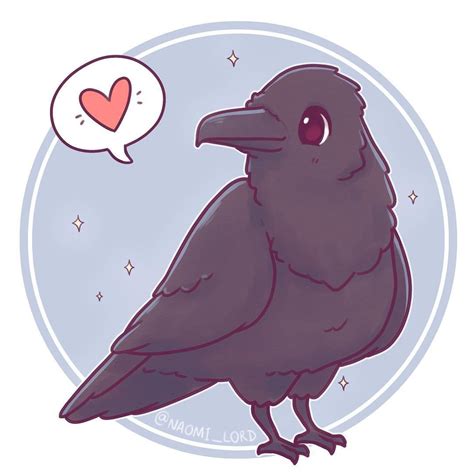New study finds small reductions in social media use are linked to improvements in health and well-being::A study published in the Journal of Technology in Behavioral Science suggests that reducing social media usage by just 15 minutes per day can lead to improved health and well-being, particularly in terms of social life, vitality, and overall health. These findings add to the growing body of research indicating that limiting social media usage can have positive effects. …
IDK I’ve definitely had a positive effect since I started using Lemmy.
Maybe it’s because of all you stars on here.
Taking charge of your own life and choosing to be on a platform like lemmy instead of going to a platform like reddit or Facebook by default is a big deal.
If nothing else, I love it for the fact that I’m not bombarded with targeted ads.
I’m annoyed with ads like most of us, but I’m hitting a breaking point. I was watching YT on my TV yesterday and the amount of ads now is ridiculously over the top. I was tired of my Spotify songs so I put on the radio, big mistake.
Being here feels a little better suited for me compared to the rest of social media. Everything else is constant shilling and manipulation, I’m tired of it.
How the fuck do you use internet without blocking ads?
I have ublock origin on my browser but laying on the couch watching TV hits different. It’s a smart TV but an older variety.
I mean, it IS doable on smart TVs and things like that. Like what pi-hole does.
I’m aware, and have a spare pi, but I’m too lazy. (Being honest, lol)
I suspect that not all social media is equal. And that even within the same site, people can have radically different experiences because social media is always tailored to you in some way. On sites like Reddit and Lemmy, it’s tailored by the communities you subscribe to. On Mastodon, Facebook, Instagram, or Twitter, it’s tailored by who you subscribe to and sorting algorithm.
I suspect that the difference in who/what you subscribe to would actually be bigger than the difference by site. You can find really toxic, harmful content on every site and you can also find really positive, helpful content on every site. Though some sites make it easier to be exposed to harmful content.
Eg, the Reddit/Lemmy model benefits from the fact that moderators can apply strict rules to communities you subscribe to (such that you only have to curate broad communities). By comparison, many other sites would let pretty much anyone reply to posts by specific people or groups and while the original poster can usually block or remove replies, that’s not scalable and posters often won’t.
But that said, we can’t forget that Lemmy is still social media. It still has many of the risks that social media has and we must be cautious of that. I firmly think we can ensure Lemmy is better than all other forms of social media (I do think the Reddit/Lemmy moderation model is strictly superior), but there’s a lot more we can and should do to ensure Lemmy is of high quality and that people can and do curate their feeds responsibly.
I always call Reddit/Lemmy Social News when someone asks, is this a different or a subcategory of social media?
Had the opposite effect stopped using Lemmy when I can this place is doom and gloom I’ll wait a year if things get better
I’m sure the social network also matters, too.
You get better when you get off Facebook?
You get off Facebook when you get better?
No news here :-)
It’s not social media in general that’s harmful, it’s the algorithms that feed you garbage
Welp! Good night guys! Stoping here! Thanks OP
We know you wont. 😉
Well I did! Ha! (Although I was supposed to be asleep an hour before)
deleted by creator
We all need to break the cycle!
Sample size, 50 students. Lol nothing to see here. This has no value whatsoever.
This is such a common sneer, but it’s naive and misguided. In the hope a few people see this, consider a thought experiment: how many students would you have to push off a cliff to get solid evidence that pushing people off a cliff is harmful? The point being that when a phenomenon is powerful, it’s quite possible to study it even with small and selective samples.
I get what you mean but please read the study: https://link.springer.com/article/10.1007/s41347-023-00304-7
They themselves note that the very small sample size would be an issue. They say they would need 78 people for even remotely confident results, then they initially targeted 74 people, of which 20 dropped out.
Let me be clear that I too want to believe that social networks are bad for people, but studies like this one do very very little to provide any meaningful data to base my opinion on.
It’s good to look at the original study, but what that tells me is that for the effect to emerge as significant despite the lack of participants, it was quite possibly even larger than the researchers estimated in their power analysis
Small sample sizes don’t invalidate studies. They reduce the statistical certainty, but can still be accurate and there’s formulas for gauging how accurate a given sample size is based off the standard deviation.
The student only part does mean a sampling biase, but that doesn’t invalidate things either. Mostly just limits it such that we can only make the claim for students and not anyone else (but it’s still a meaningful result and provides justification for larger studies).
Maybe a motivation to do a bigger one
Nonsense. Small sample size studies are legitimate, there is just an increased margin of error when generalizing to the population. They can absolutely still be significant.








